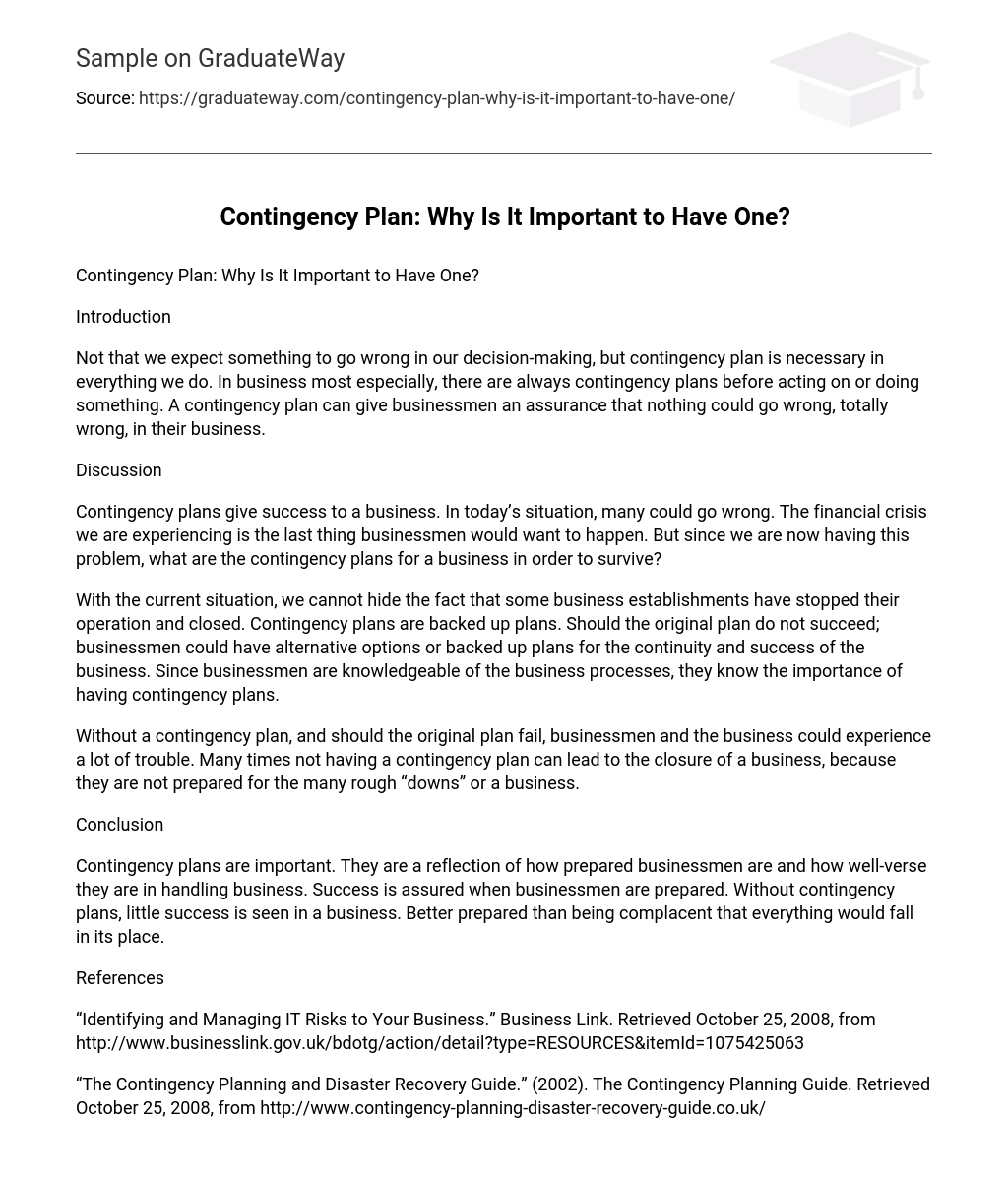Contingency Plan: Why Is It Important to Have One?
Introduction
Not that we expect something to go wrong in our decision-making, but contingency plan is necessary in everything we do. In business most especially, there are always contingency plans before acting on or doing something. A contingency plan can give businessmen an assurance that nothing could go wrong, totally wrong, in their business.
Discussion
Contingency plans give success to a business. In today’s situation, many could go wrong. The financial crisis we are experiencing is the last thing businessmen would want to happen. But since we are now having this problem, what are the contingency plans for a business in order to survive?
With the current situation, we cannot hide the fact that some business establishments have stopped their operation and closed. Contingency plans are backed up plans. Should the original plan do not succeed; businessmen could have alternative options or backed up plans for the continuity and success of the business. Since businessmen are knowledgeable of the business processes, they know the importance of having contingency plans.
Without a contingency plan, and should the original plan fail, businessmen and the business could experience a lot of trouble. Many times not having a contingency plan can lead to the closure of a business, because they are not prepared for the many rough “downs” or a business.
Conclusion
Contingency plans are important. They are a reflection of how prepared businessmen are and how well-verse they are in handling business. Success is assured when businessmen are prepared. Without contingency plans, little success is seen in a business. Better prepared than being complacent that everything would fall in its place.
References
“Identifying and Managing IT Risks to Your Business.” Business Link. Retrieved October 25, 2008, from http://www.businesslink.gov.uk/bdotg/action/detail?type=RESOURCES&itemId=1075425063
“The Contingency Planning and Disaster Recovery Guide.” (2002). The Contingency Planning Guide. Retrieved October 25, 2008, from http://www.contingency-planning-disaster-recovery-guide.co.uk/





